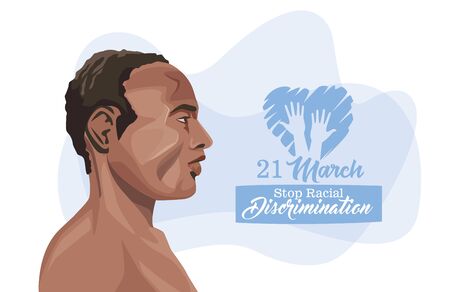Introduction: Changing Attitudes towards Male Grooming
In recent years, there has been a noticeable shift in the way men across the UK approach skincare and grooming. Historically, conversations around beauty treatments and self-care were largely centred on women, while men often faced societal pressure to avoid these topics altogether. However, this landscape is rapidly evolving. British men are increasingly embracing a broader definition of self-care, one that extends beyond the traditional shave-and-a-haircut routine. This change reflects a wider cultural move towards breaking down long-standing taboos, encouraging men to take pride in their appearance without fear of judgement. As radiofrequency skin tightening gains traction as a non-invasive solution for ageing and skin concerns, it becomes clear that attitudes are transforming—not just towards the treatment itself, but towards the very idea of men investing in their own wellbeing.
2. What is Radiofrequency Skin Tightening?
Radiofrequency (RF) skin tightening is a non-invasive cosmetic treatment that uses energy waves to heat the deeper layers of your skin, known as the dermis. This controlled heating stimulates collagen and elastin production, which are essential proteins for keeping skin firm, smooth, and youthful. Unlike surgical procedures, RF treatments do not require incisions or significant downtime, making them an attractive option for men who want noticeable results without disrupting their daily routine.
How Does It Work?
The science behind RF skin tightening is straightforward yet effective. A specialised device delivers radiofrequency energy into targeted areas beneath the skin’s surface. As the tissue heats up, it triggers a natural healing response—boosting collagen and elastin fibres that gradually tighten and lift the skin. Most people experience a warming sensation during treatment but little to no discomfort.
Suitability for Men
While skincare has often been marketed towards women in the UK, RF skin tightening offers clear benefits for men as well. Male clients typically seek this treatment to address sagging jawlines, loose neck skin, or fine lines around the eyes—areas where visible ageing can be more pronounced due to thicker male skin or facial hair patterns.
Key Benefits of RF Skin Tightening for Men
| Benefit | Description |
|---|---|
| Non-surgical | No scalpels or stitches required; minimal recovery time |
| Subtle Results | Enhances natural appearance without obvious signs of treatment |
| Suitable for All Skin Types | Works effectively on different skin tones and textures |
| Time-efficient | Treatments usually completed within an hour—ideal for busy schedules |
Who Should Consider RF Skin Tightening?
This treatment is particularly suitable for men experiencing mild to moderate skin laxity who prefer a gradual improvement over dramatic changes. It’s also popular among those seeking preventative care or wishing to maintain a youthful look without invasive surgery. Overall, RF skin tightening represents a modern approach to male grooming in the UK—offering practical, discreet results that fit seamlessly with contemporary lifestyles.

3. Why More British Men Are Opting for Skin Tightening
In recent years, there has been a notable shift in how British men perceive cosmetic treatments, with radiofrequency skin tightening gaining traction as a preferred non-invasive option. Traditionally, aesthetic procedures were often considered the domain of women, but changing cultural attitudes and evolving lifestyle expectations are now breaking this stereotype across the UK. The modern British man is increasingly invested in personal grooming and self-care, motivated by both professional and social pressures to maintain a youthful and refreshed appearance. This trend is further amplified by the growing acceptance of wellness and self-improvement among men, as seen in the popularity of male-focused skincare products and grooming services.
The influence of social media and celebrity culture cannot be underestimated, with public figures openly discussing their experiences with cosmetic enhancements. This transparency has helped normalise procedures like radiofrequency skin tightening, making it more approachable for the average man. Furthermore, the desire to remain competitive in an evolving job market—where looking energetic and confident can make a tangible difference—has encouraged many to seek subtle yet effective solutions that fit seamlessly into busy lifestyles.
The appeal of non-surgical treatments lies not just in the minimal downtime but also in the subtle results they offer. Unlike more invasive procedures, radiofrequency skin tightening provides a natural-looking improvement that aligns well with British sensibilities—discreet enhancement rather than dramatic change. As conversations around masculinity continue to evolve, more men are recognising that taking care of one’s appearance is not only acceptable but also empowering. This collective shift in mindset is paving the way for increased uptake of advanced aesthetic technologies among men throughout the UK.
4. Addressing the Stigma: Normalising Men’s Aesthetic Treatments
Despite the growing popularity of non-surgical procedures like radiofrequency skin tightening, there remains a persistent stigma surrounding men seeking cosmetic treatments in the UK. This is largely rooted in traditional British values of stoicism and the notion that self-care or concern about appearance is somehow unmasculine. As a result, many men may feel apprehensive or embarrassed about openly discussing their interest in aesthetic procedures.
Understanding the Stigma
The stigma can manifest in several ways—from subtle social judgement to outright teasing. While women’s aesthetic choices are often discussed freely, men may worry about being perceived as vain or insecure if they express similar concerns. In a society where “keeping a stiff upper lip” has long been encouraged, this mindset can hinder open conversations about self-care and personal wellbeing among men.
Common Barriers Faced by Men
| Barrier | Description |
|---|---|
| Fear of Judgement | Concerns over being mocked by peers or family for undergoing cosmetic procedures. |
| Lack of Information | Limited exposure to male-oriented treatment information and real-life testimonials. |
| Stereotypical Gender Norms | The belief that aesthetics are solely a female concern. |
| Privacy Concerns | Desire for confidentiality due to potential workplace or social repercussions. |
Strategies for Fostering Open Conversation
Normalising men’s aesthetic treatments requires both cultural shifts and practical approaches. Here are several strategies that can help break down barriers:
1. Visible Role Models and Testimonials
High-profile male figures, from athletes to TV personalities, sharing their own experiences with skin treatments can go a long way towards destigmatising these choices. Clinics could feature anonymous or named testimonials from male clients on their websites and brochures.
2. Education and Transparency
Providing clear, accessible information specifically tailored to men—including expected results, downtime, and costs—helps demystify procedures like radiofrequency skin tightening. Educational seminars or Q&A sessions at local clinics can also empower men with knowledge.
3. Inclusive Marketing and Language
Aesthetic clinics should ensure their marketing materials reflect diversity, using imagery and language that speaks directly to men. Simple changes—such as using “gentlemen” alongside “ladies” in promotional content—can make a big difference.
4. Creating Welcoming Environments
Treatment settings play a key role; offering discreet booking options, private waiting areas, and male-focused consultation hours fosters comfort and privacy for male clients.
Cultural Shifts: Looking Ahead
The landscape is slowly changing, with younger generations in particular showing greater openness toward personal care regardless of gender. By continuing to challenge outdated norms and encouraging honest dialogue, the UK can move toward normalising aesthetic treatments for everyone—including those who have long felt excluded from the conversation.
5. Benefits & Expectations: A Realistic Outlook
When considering radiofrequency (RF) skin tightening, it’s important for British men to approach the treatment with both optimism and practicality. The appeal of RF treatments lies in their non-invasive nature, requiring no scalpels or lengthy recovery periods—something that suits the busy lifestyles many men lead across the UK. But what can you genuinely expect from these procedures?
Firstly, RF skin tightening can help reduce mild to moderate skin laxity, especially around the jawline, neck, and cheeks—areas where men often notice sagging as they age. The results are typically subtle rather than dramatic, providing a refreshed and naturally firmer appearance rather than an artificial look. This aligns well with British sensibilities that often favour understated enhancement over obvious cosmetic changes.
Another practical benefit is the minimal downtime involved. Most men can return to work or social activities straight after their appointment, which makes RF an appealing option for those who want results without disrupting daily routines. Side effects such as redness or slight swelling usually resolve within hours, so there’s little risk of drawing unwanted attention—helpful for those who prefer discretion regarding aesthetic treatments.
It’s also worth noting that consistency is key. Achieving and maintaining optimal results generally requires a course of treatments spaced out over several weeks. This gradual improvement process means friends and colleagues are less likely to notice a sudden change, allowing men to enhance their appearance subtly over time—a preference echoed by many British clients.
Ultimately, while RF skin tightening won’t deliver the same results as surgical facelifts, it offers a comfortable middle ground: a boost in confidence and self-assurance without drastic intervention. By setting honest expectations and understanding the incremental benefits, British men can confidently embrace this technology as a modern solution for looking and feeling their best.
6. Finding the Right Clinic: British Standards and Considerations
When considering radiofrequency skin tightening treatments in the UK, choosing a reputable clinic is just as important as understanding the procedure itself. The UK has robust standards for aesthetic procedures, but it’s still crucial to do your own due diligence. Here’s a practical guide for British men to ensure you’re making informed, safe choices when seeking RF treatments.
Check Clinic Registration and Practitioner Qualifications
First and foremost, confirm that the clinic is registered with the Care Quality Commission (CQC) or relevant regulatory body in Scotland, Wales, or Northern Ireland. This ensures the clinic meets essential health and safety standards. Ask if practitioners are medically qualified—ideally GMC-registered doctors, NMC-registered nurses, or HCPC-registered professionals—who have specific training in non-surgical cosmetic procedures.
Assess Experience and Specialisation
Radiofrequency devices require skilled handling for both safety and efficacy. Enquire about the practitioner’s experience with men’s skin—men often have different skin thickness and concerns compared to women. Ask how many RF procedures they perform weekly, particularly on male patients. Don’t hesitate to request before-and-after photos of previous clients (with consent) to assess their results.
Questions to Ask Before Booking
- What device will be used? Is it CE-marked for safety?
- How many sessions will I likely need based on my goals?
- What are the possible side effects for my skin type?
- What aftercare support is provided?
- Are there hidden costs, such as follow-up appointments or products?
The Importance of Consultation
A thorough pre-treatment consultation should be standard practice. Expect a discussion about your medical history, lifestyle, expectations, and any contraindications. If you feel rushed or pressured into booking, consider it a red flag. British clinics with integrity prioritise patient education over sales tactics.
Reviews and Community Recommendations
Take advantage of local resources: read online reviews on platforms like Trustpilot or Google Reviews and seek recommendations from friends or colleagues who have had similar treatments. A strong reputation within your community is often a trustworthy indicator of quality care.
Prioritising Comfort and Confidentiality
Your comfort matters. The best UK clinics foster an inclusive atmosphere where men can discuss their concerns without embarrassment. Discreet appointment scheduling and confidential consultations should come as standard—don’t settle for less.
Selecting the right clinic requires patience and research, but it’s worth it for safe results and peace of mind. By following these British-specific considerations, you’ll be well equipped to make a confident choice that aligns with both your personal goals and the highest standards of care.


